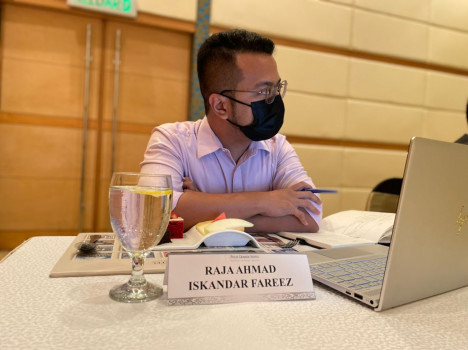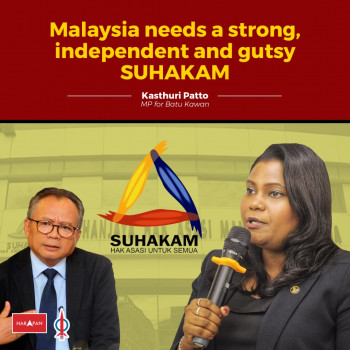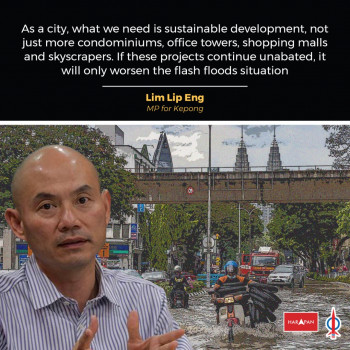by Piarapakaran S
Malaysia is blessed with ample rainfall and ‘rain’ is the keyword for our sufficient raw water supply. However, forest and highlands play a vital role in ensuring a continuous supply of raw water for all our activities as they are part of our water cycle. If the forest and highlands are altered, we are going to seriously jeopardise our water security. That’s a scientific fact!
Total water consumption is basically divided into domestic, industry (including commercial) and agriculture use which uses 17%, 21% and 62% respectively. However, almost 2/3 of treated water is consumed by domestic sector. This is mainly because many industries and agricultural activities draw water directly from nature for their use. Are they using it efficiently? There is no agency enforcing efficient use of water in industry and agriculture sectors at the moment.
In recent months, many news reports over forest logging have surfaced. This was coupled by suggestions of raw water tariff to prevent logging and create economic returns from the forest. Does this really help? or Will Malaysia head towards a widespread water crisis and perhaps an economic crisis if the forest is not protected?
Primary problem of water catchments in Malaysia is that they are not permanently gazetted. Logging gives lucrative short-term income only and many state governments fall for this. Association of Water and Energy Research Malaysia (AWER) urges all state governments to buckle up by making water catchment for all uses as permanent reserves by year 2015. These permanent reserves must also look into future generation’s demand projections.
If state governments fail to gazette water catchment areas as permanent reserves, a national referendum must be carried out to prevent loss of water catchment areas as well as placing the power for water resources directly under the parliament. AWER does not recommend this power to be vested to a federal ministry.
Secondly, for existing water catchment areas that are already being utilised for development purposes (residence or industry) can be upgraded gradually. If the wastewater discharge standard is lower, it can be upgraded gradually to a higher standard. This can improve the raw water quality periodically.
For example, the Salak Tinggi Water Treatment Plant in Selangor receives raw water that is contaminated via industry and domestic discharges. Both engineering and legal solutions can be adopted to increase the quality of wastewater that is discharged to rivers. Rhine River in Europe is a good example of this success as few European countries worked together to clean up this river and it is one of the leading examples of river recovery project in the world.
Finally, we can look into raw water tariff. In some states raw water usage is charged every cubic metre but some states seeks royalty payment. Moving forward, we need to implement a uniform and transparent raw water quality based raw water tariff setting. Since water resource is placed under state government, they should provide raw water at a specific quality.
Deterioration in raw water quality should reflect as low payment for the raw water. Element of penalty should also be imposed of the state government fail to meet minimum raw water quality requirement. This will be able to place an economic value for water and assist the state government to actually do a cost-benefit analysis.
In addition to that, trans-boundary water should also be subjected to raw water tariff. For example, the Ulu Muda forest reserve that is the water catchment for Sungai Muda. Anyone that draws water from this river should assist the Kedah state government to protect the water catchment. Similarly, many rivers run along the borders of states in Malaysia. If protecting the water catchment can ensure water security, we should go all out for it.
Whatever mechanism we are putting in place, without the forest, Malaysia will suffer terrible economic and social backlash. However, raw water tariff alone cannot solve the problem as it is not a lucrative mechanism; it is socio-economic mechanism to protect the people and businesses.
We are losing our precious link to natural water cycle via logging. Malaysia would be joke of the world when we are blessed with so much rain yet fail to protect our own water security. Think about it!
_________________________________________________
* The writer is president, Association of Water and Energy Research Malaysia (AWER). This article first appeared in HarakahDaily.net



